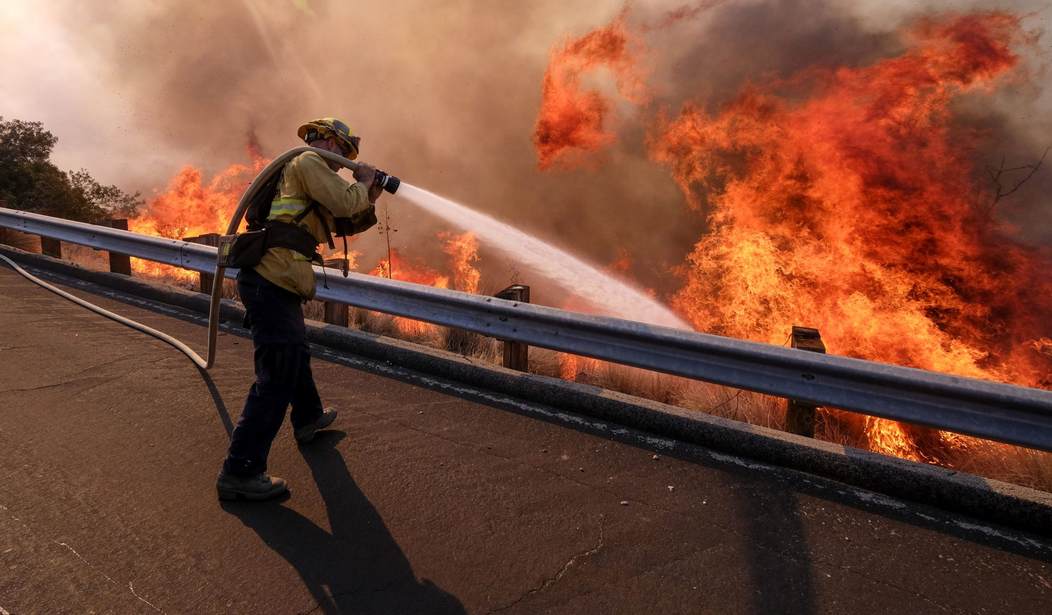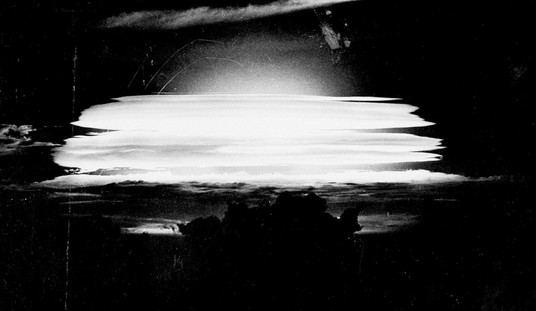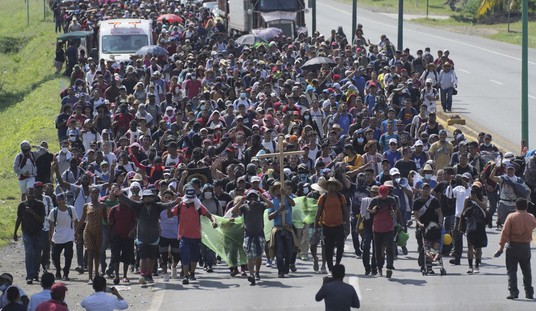One of the many media groups supporting ISIS operations online claimed that the deadly wildfires in northern and southern California are retribution for coalition bombings in Syria.
The image circulated online by Al-Ansar Media uses a photo of a burning building and misspells the state “kalifornia.”
“O america, This is the punishment of bombing Muslims in Syria,” states the text. “This is Allah’s punishment for you. And in shaa Allah, you will see more fires. Praise be to Allah.”
The Camp Fire in Butte County, north of Sacramento in California’s Gold Rush country, has claimed the lives of at least 48 people, according to Cal Fire incident stats today. The blaze, which started Thursday, has destroyed 7,600 residences and 260 commercial buildings, making it the most destructive fire in the state’s history as it ripped through Paradise, Calif., at a speed of 80 acres per minute. It was 35 percent contained today at 130,000 acres. The cause is still under investigation.
The Woolsey Fire has torched 97,620 acres in Ventura and Los Angeles counties after starting on Thursday, and was 47 percent contained today. The blaze resulted in the evacuation of Malibu, reaching the Pacific Coast Highway. There have been two fatalities and 483 structures destroyed including several celebrities’ homes. The cause of this blaze is also still under investigation.
ISIS has not officially taken responsibility for either of the fires. The terror group has previously suggested both wildland and commercial or residential arson as an attack tactic.
This time last year, as several wind-whipped blazes ravaged California, ISIS highlighted the ferocity and toll of the wildfires in multiple issues of their al-Naba newsletter, which usually focuses on news from around ISIS’ occupied territories and conflict zones.
In January 2017, ISIS’ Rumiyah magazine — which was published in multiple languages including English yet is no longer produced by the terror group — stressed to would-be jihadists that “incendiary attacks have played a significant role in modern and guerrilla warfare, as well as in ‘lone wolf’ terrorism,” claiming a November fire at a furniture factory in Losino-Petrovsky, Russia, and highlighting scores of wildfires around Israel that month as incidents that “demonstrated the lethality of such an effortless operation.”
Suggested target locations for arson attacks, the magazine stated, “include houses and apartment buildings, forest areas adjacent to residential areas, factories that produce cars, furniture, clothing, flammable substances, etc., gas stations, hospitals, bars, dance clubs, night clubs, banks, car showrooms, schools, universities, as well as churches, Rafidi [Shiite] temples, and so forth. The options are vast, leaving no excuse for delay.”
Jihadists were advised to time their arson “preferably in the later part of night to the early hours of morning when people are generally asleep,” and instructions were offered on how to block off exits to inflict casualties. For wildfires, ISIS said to look for dry brush “as fire cannot endure in damp or wet environments.” Arsonists were encouraged to leave the mark of ISIS somewhere near the fire site with spray paint or black marker.









Join the conversation as a VIP Member